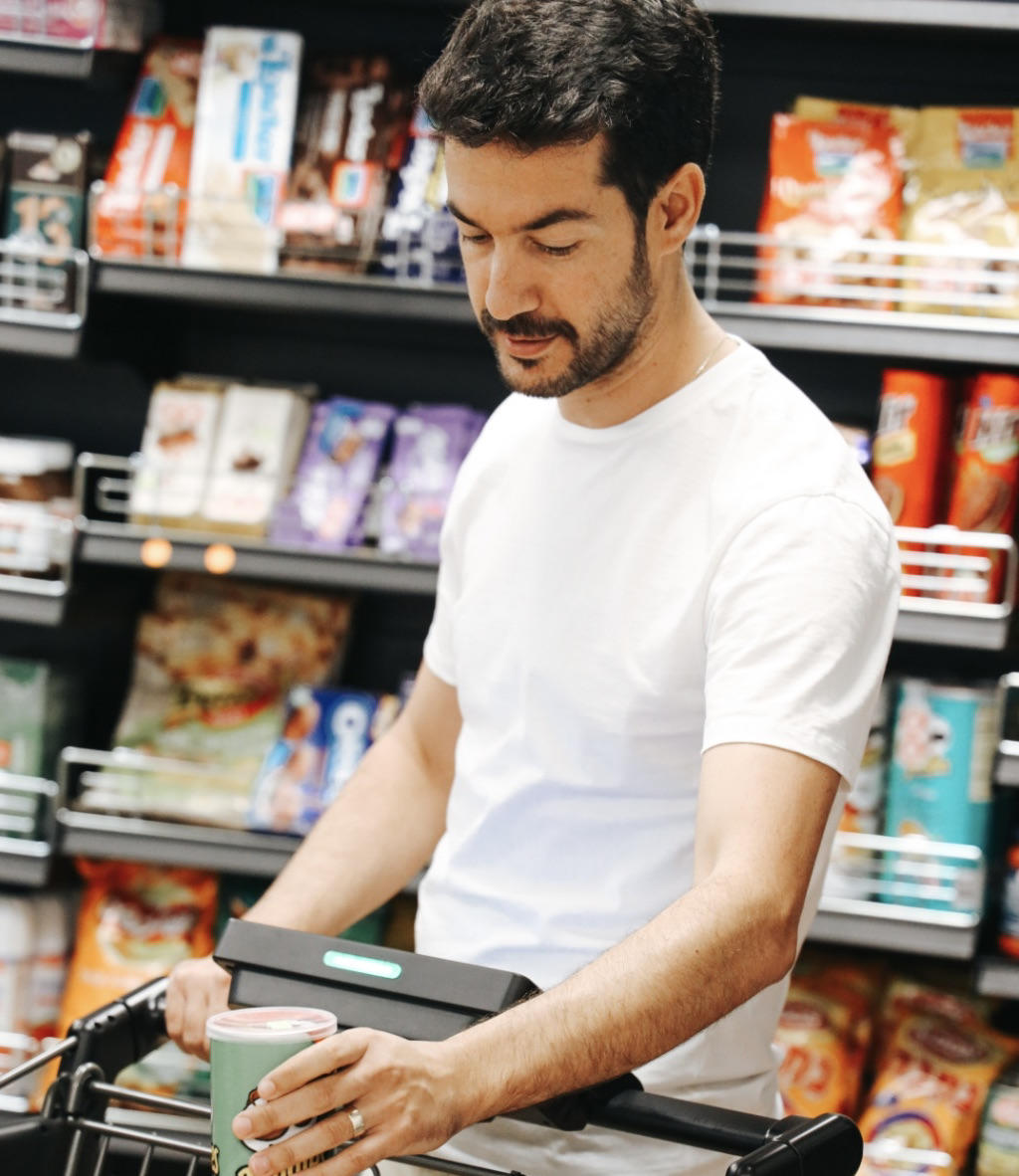I started working on the idea for WalkOut alongside my co-founders in 2018, with the ultimate goal of solving the most common daily frustrations of grocery shopping. It was our goal to bring our vast knowledge and expertise in machine learning and computer vision to come up with a solution that can truly innovate an industry stuck in the past. As a result, we began developing a solution that moves the checkout directly to the user’s shopping cart or basket.
We utilize highly accurate machine vision, with an over 99 percent accuracy rate, in order to identify each item placed into or removed from the cart, eliminating unnecessary effort and reducing checkout time to zero. It includes a large touchscreen on the cart, which offers personalized content such as suggestions and promotions based on past behavior and the products selected, store navigation, supplementary product information, and more. Unlike many of our competitors, our solution can be added and retrofitted onto existing shopping carts. Considering the recent travails of the world, I feel this is a significant moment in history, for which technology and innovation have an opportunity to create solutions to problems and improve people’s lives in so many ways.

How did you come up with the idea for the company?
I studied Computer Engineering and Applied Physics at the Hebrew University of Jerusalem, a leading university in Israel, together with my two co-founders, Tomer and Ben. Hebrew U is also where the initial seed was planted in our minds that eventually grew into the idea for WalkOut. The head of the department of our Bachelor’s program spoke at length about how technology will shape our future, stating “everything you throw in your shopping cart will be automatically identified using RFID chips.” We were inspired by this notion and wanted to take it one step further by creating a more practical solution.
The biggest customer pain point is the lengthy and tedious process of checking out, waiting in line, and scanning every item, which can lead shoppers to abandon their shopping carts. A study by Forrester revealed three of the most crucial factors influencing a shopper’s decision: While the first two — price and location — were a given, the strong showing of checkout experience was no surprise. According to the report, “While it’s no surprise that customers don’t want to wait in long lines and have slow checkout processes, the extent to which they care might surprise many retailers.” This issue has been ever-present in my lifetime and even in my parents lifetime, with no real advances towards a legitimate solution.
More from Interviews
- Meet Roman Eloshvili, Founder of ComplyControl
- Inside Mobile Payments with Bojoko’s Ville Saari
- Meet Steve Haskew, Group Director of Sustainability and Growth At Circular Computing
- A Chat with Hakob Astabatsyan, CEO and Co-Founder of Synthflow AI
- Meet Ernesto Suarez, CEO at Travel Insurance Provider: Gigasure
- Under Pressure and On the Clock: Gurhan Kiziloz’s Nexus International to Hit $1.45B Revenue in 2025
- Daisy Ip of InvestHK: Why Hong Kong Continues To Grow In Popularity Amongst UK Fintech Startups
- A Chat with AJ Balance, Chief Product Officer at Grindr
How has the company evolved during the pandemic?
In the beginning, there was a lot of fear revolving around the possible effects it would have on the retail industry. But we were surprised to discover that grocery retail actually flourished during the pandemic, which had a very positive impact on our company’s growth.
Ironically, we’ve garnered most of our customers during the pandemic. Also, during a time when people are looking for less interaction and more social distancing awareness, frictionless payments and checkout solutions are booming.
What can we hope to see from WalkOut in the future?
We’re very excited about the future for WalkOut. In terms of our most immediate priorities, we will continue ramping up conversations in the retail industry, feeling out the state of frictionless shopping solutions and making sure our product remains the most valuable proposition within retail.
We aim to expand our operations, particularly in the UK, German, and US markets, with the intention of hiring more people to support this move. But in terms of our vision, the future of the shopping experience should look unmistakably different from years passed, and making it frictionless could completely transform our culture of procurement.



